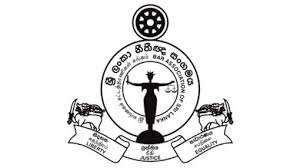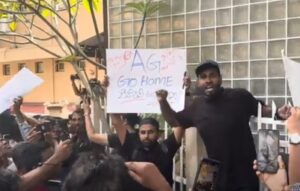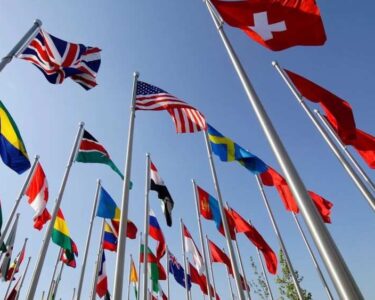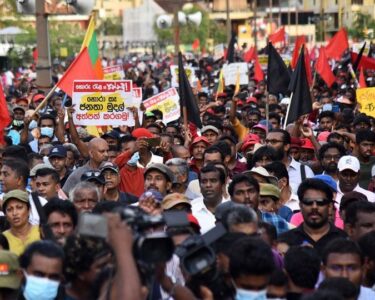The Debate on Judicial Independence: A Call for Collaboration Between Lawyers and Journalists
The recent debate surrounding the Bar Association of Sri Lanka (BASL) and its concerns over the government’s potential interference in the Lasantha Wickrematunge assassination case brings into sharp focus the delicate balance between judicial independence and government oversight. At the heart of the controversy is the issue of whether the government should review a decision made by the Attorney General (AG), which led to the discharge of three suspects in the case. The BASL argues that such a review would undermine the independence of the judiciary, which is a vital principle in maintaining the rule of law in Sri Lanka. However, the government’s position is that the decision, especially in a high-profile case like this, deserves scrutiny to ensure justice is served.

The BASL’s Position: Judicial Independence Should Be Preserved
The BASL insists that the Attorney General’s decisions, particularly in criminal cases, should not be influenced by political authorities, including the Cabinet of Ministers. According to the BASL, the AG performs a quasi-judicial role, and decisions regarding whether to charge or discharge a suspect must be based solely on the material provided by the investigating authorities, without external interference. The association views the Attorney General’s role as integral to the justice system’s credibility and warns that political meddling could lead to the erosion of judicial independence, undermining the rule of law in Sri Lanka.

It is crucial to understand that the BASL’s argument comes from a place of protecting legal principles. After all, judicial independence is a cornerstone of any functioning democracy. However, the reality of Sri Lanka’s legal system—with its checkered past of political interference—compels one to question whether the AG’s office is always as impartial as the BASL suggests. In a country where high-profile cases have been swept under the rug, especially those involving powerful individuals, the government’s intervention, far from being an affront to judicial independence, could be viewed as a necessary corrective.
Government’s Role: Oversight vs. Interference
While the BASL advocates for the non-interference of political authorities, it is worth considering that the government has an inherent duty to ensure public confidence in the legal system. In a society where justice has often been manipulated to protect the interests of the elite, public oversight of legal proceedings—particularly those with national significance like the Wickrematunge case—is crucial.
The Attorney General, while holding significant power, is not beyond scrutiny. Public accountability is not only important for legal officers but for the entire judicial process. The government may be seen as a guardian of justice, ensuring that unfair practices or miscarriages of justice do not continue under the guise of legal procedure. If the AG’s decision regarding the discharge of suspects is flawed, the government has a responsibility to ensure that justice is restored.
The BASL’s argument, while valid in protecting the sanctity of judicial independence, must acknowledge that public scrutiny of the AG’s office does not necessarily equate to an erosion of judicial impartiality. If a decision is seen as inconsistent with the public’s sense of justice, it should be reviewed—not as a political move, but as part of ensuring that truth and fairness prevail in the legal process.

A Middle Ground: Collaboration Between Lawyers and Journalists
This issue is not merely a matter of legal technicalities but one that involves the broader public interest. Journalists, like lawyers, are tasked with upholding truth and justice in society. The BASL may stand firm in its position, but it is essential to recognize that their argument is just one side of a much larger conversation about transparency and accountability in Sri Lanka’s legal and political systems.
In this context, it is time for both lawyers and journalists to collaborate. Lawyers, as defenders of the law, and journalists, as defenders of the public’s right to know, share a common goal: the preservation of justice. The BASL, while upholding legal principles, must also engage with journalists who are holding the legal system accountable for its failures. The two groups must work together to ensure that the rule of law remains above the influence of political power.
Instead of polarizing the conversation, both lawyers and journalists should have an open dialogue to better understand each other’s roles in safeguarding justice. Lawyers must recognize that public trust is an essential element of a functioning justice system, while journalists must be mindful of the legal complexities involved in high-profile cases. By finding common ground, both groups can work to ensure that truth, transparency, and fairness guide the judicial process.
A Call for Action
In conclusion, the debate about the Attorney General’s role in criminal proceedings and the government’s potential interference in such decisions must be addressed in a way that respects judicial independence while ensuring accountability. However, to safeguard justice, the BASL and journalists must come together and discuss how they can mutually support each other in their shared mission. Both groups must recognize that their roles, while different, are interdependent. Lawyers must engage with journalists to ensure that justice is not only done but seen to be done, and journalists must be careful not to undermine the legal process by overstepping their bounds. Only through cooperation and mutual respect can the rule of law and the public’s trust in the legal system be maintained.
Ravindra Lochana








